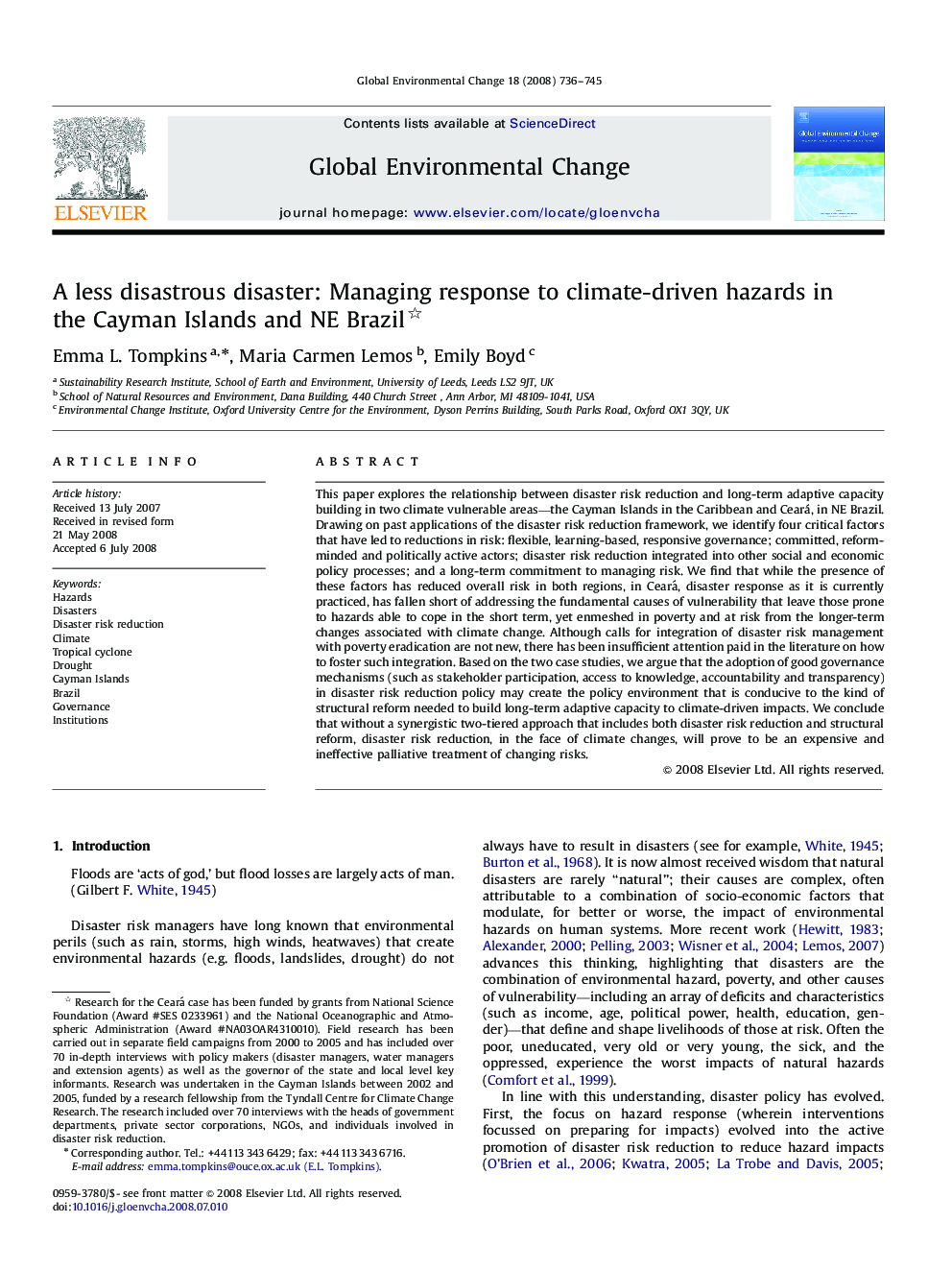| کد مقاله | کد نشریه | سال انتشار | مقاله انگلیسی | نسخه تمام متن |
|---|---|---|---|---|
| 1054803 | 946857 | 2008 | 10 صفحه PDF | دانلود رایگان |

This paper explores the relationship between disaster risk reduction and long-term adaptive capacity building in two climate vulnerable areas—the Cayman Islands in the Caribbean and Ceará, in NE Brazil. Drawing on past applications of the disaster risk reduction framework, we identify four critical factors that have led to reductions in risk: flexible, learning-based, responsive governance; committed, reform-minded and politically active actors; disaster risk reduction integrated into other social and economic policy processes; and a long-term commitment to managing risk. We find that while the presence of these factors has reduced overall risk in both regions, in Ceará, disaster response as it is currently practiced, has fallen short of addressing the fundamental causes of vulnerability that leave those prone to hazards able to cope in the short term, yet enmeshed in poverty and at risk from the longer-term changes associated with climate change. Although calls for integration of disaster risk management with poverty eradication are not new, there has been insufficient attention paid in the literature on how to foster such integration. Based on the two case studies, we argue that the adoption of good governance mechanisms (such as stakeholder participation, access to knowledge, accountability and transparency) in disaster risk reduction policy may create the policy environment that is conducive to the kind of structural reform needed to build long-term adaptive capacity to climate-driven impacts. We conclude that without a synergistic two-tiered approach that includes both disaster risk reduction and structural reform, disaster risk reduction, in the face of climate changes, will prove to be an expensive and ineffective palliative treatment of changing risks.
Journal: Global Environmental Change - Volume 18, Issue 4, October 2008, Pages 736–745